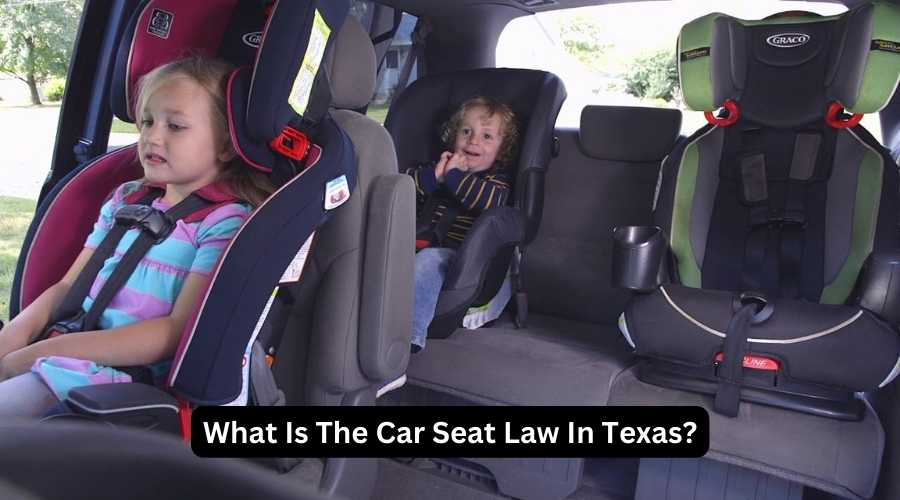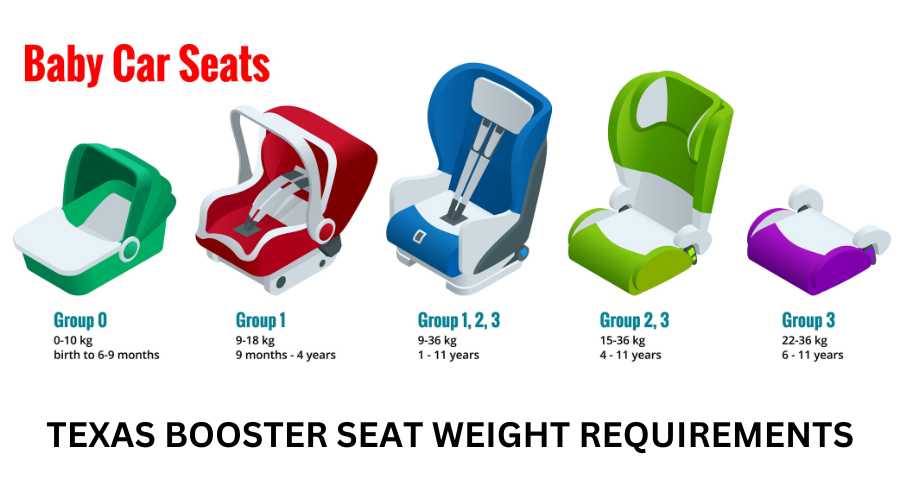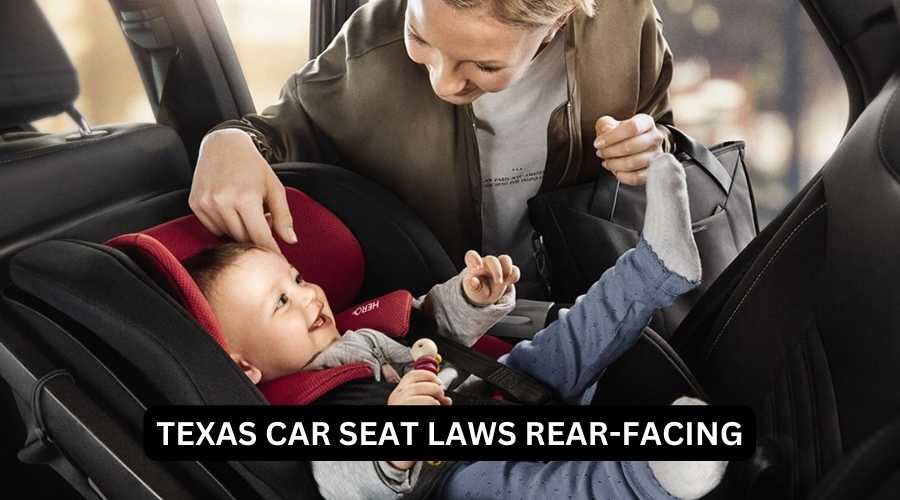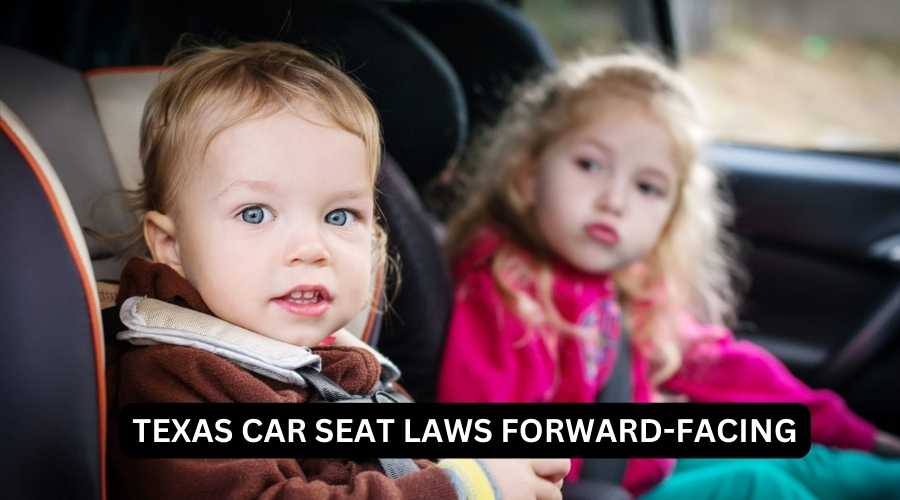As a parent, ensuring your child’s safety while traveling in a car is of the utmost importance. One crucial aspect of this is ensuring that your child is appropriately restrained in a car seat. The Texas car seat safety laws outline the legal requirements for the use of child safety seats in the state, and it’s crucial to understand them to ensure that you’re complying with the law.
According to the National Highway Traffic Safety Administration (NHTSA), car crashes are the leading cause of death for children ages 1 to 13. And while proper use of child safety seats greatly reduces the risk of serious and fatal injuries, many parents, and caregivers are still not using them correctly.
In this blog post, we’ll be breaking down the Texas car seat safety laws, highlighting the essential information you need to know as a parent or caregiver.

What Is The Car Seat Law In Texas?
In Texas, the car seat law mandates that all children under the age of eight be secured in a safety seat or booster seat unless they are taller than 4 feet 9 inches.
Infants must ride in a rear-facing car seat until they are at least two years old or until they reach the highest weight or height allowed by the manufacturer of the car seat.
Children between the ages of four and eight must ride in a booster seat until they are tall enough to use a seatbelt properly, which is typically around 4 feet 9 inches.
Failure to comply with the car seat law may result in a fine of up to $250. It is important to ensure that children are properly secured in a car seat to prevent serious injury or death in the event of an accident.
The Truth About Texas Car Seat Safety Laws
Texas car seat safety laws are designed to protect children in the event of a car accident. Parents and guardians must comply with these laws to ensure the safety of their children while traveling in a car.
The laws require that children under the age of eight or under four feet nine inches tall must be properly restrained in a car seat or booster seat.
Parents and guardians must understand the importance of following these laws and take the necessary measures to ensure that their children are always safely secured in a car seat.
What is the Texas state law on child car seats?
In Texas rules to child safety seat laws, children under 8 years old must use a child safety seat or booster seat according to the manufacturer’s instructions. Children who are eight years old or older, but less than five feet tall, must be secured by a seat belt.
There are a few exceptions to the law. If a child under eight is riding in the front seat of a vehicle that does not have a passenger seat belt, the child is not required to be in a child safety seat or booster seat. Additionally, if all seat belts are occupied by other passengers then a child may ride unrestrained in the back seat.
Texas booster seat weight requirements
In Texas, the booster seat weight requirements mandate that children who are under 8 years of age and less than 4 feet 9 inches tall must be secured in a booster seat. The booster seat must be used with a lap and shoulder belt until the child reaches the age of 8 or can properly fit into a seat belt.
Adhering to these weight requirements is essential for the safety of young children traveling in vehicles. Parents and caregivers should always ensure that children are safely secured in their booster seats before driving.

What are the height and weight requirements for booster seats in texas?
Children must use a booster seat until they reach the age of 8 or a height of 4 feet 9 inches. Additionally, they should be secured in a safety belt system.
Texas car seat laws rear-facing
Texas car seat laws require children under the age of two to be in a rear-facing car seat, unless they are at least 40 inches tall or weigh more than 40 pounds. Rear-facing car seats provide the best protection for young children in the event of a crash, as they support the child’s head, neck, and spine.
Parents and caregivers should always follow the manufacturer’s instructions when installing and using a car seat, and ensure that the seat is properly secured in the vehicle. Failure to comply with Texas car seat laws can result in fines and penalties.

Texas car seat laws forward-facing
In Texas, car seat laws require children to ride in a rear-facing car seat until they are at least two years old or until they reach the highest weight or height allowed by the manufacturer of the car seat. After that, children must ride in a forward-facing car seat until they are at least four years old and weigh 40 pounds or more.
Parents and caregivers need to follow these laws and ensure that children are properly secured in their car seats to reduce the risk of injury in the event of a car accident.

Texas car seat laws 2023
As of September 1, 2023, Texas car seat laws will require that all children under the age of two be secured in a rear-facing car seat unless the child weighs 40 or more pounds or is 40 or more inches tall.
Additionally, children between the ages of two and four who have outgrown their rear-facing car seat must be secured in a forward-facing car seat with a harness until they reach the age of four or weigh 40 or more pounds.
Finally, children who have outgrown their forward-facing car seat must be secured in a booster seat until they are 4’9″ tall and between the ages of eight and twelve.
Texas car seat laws backless booster
Texas car seat laws require that children under the age of eight be secured in a child safety seat or booster seat unless they are taller than 4 feet 9 inches. Specifically, children between the ages of four and eight must be secured in a booster seat until they reach the height requirement.
However, it is important to note that backless booster seats are only approved for use in Texas if the child weighs at least 40 pounds and is over 40 inches tall. Parents and caregivers should always follow the recommended guidelines for car seat safety to ensure the well-being of their children while riding in a vehicle.
New car seat laws in Texas 2022
This is a huge change for Texas families; the new law requires all children under the age of 2 to be in a rear-facing car seat, regardless of weight or height. Children 2-7 years old must be in a forward-facing car seat with a 5-point harness. And, all children 8 years of age and older must ride in a booster seat.
This is a big change, but it helps keep children safe while riding in vehicles. Be sure to stay up-to-date on the new car seat laws in Texas.
What if someone did not follow these rules?
Someone who does not follow the new car seat law in Texas may be subject to a fine. The fine will vary depending on the offense and it starts at $25 but does not exceed $250.
Injury and car crashes Data in TX
Car crashes are the leading cause of death for children under the age of 14, and properly restraining children in car seats has been shown to reduce the risk of death or serious injury by more than 60%.
The Texas Legislature passed the law in response to a rise in fatal car crashes involving children. In 2020, there were 453 traffic deaths in Texas, and 100+ were children. This was the highest child traffic death in the state since 2011 in a single year.
Seat law by Seat type in Texas
- Infant car seat- Age 1 but must use a rear-facing seat.
- Rear-facing car seat- Under age 2 children can ride a Rear-facing seat.
- Forward-facing car seat- Children aged 2-7 can use forward-facing seats.
- Booster seats– these are for under 8 years who have outgrown child safety seats.
- For 8 years old and up can use a properly fitted seat belt.
When can a child sit in the front seat in Texas?
In Texas, there is no specific age requirement for a child to sit in the front seat of a vehicle. However, it is recommended to follow guidelines from the American Academy of Pediatrics (AAP). The AAP suggests that children should ride in the rear-facing car seat until at least the age of 2, or until they reach the maximum weight or height limit allowed by the car seat manufacturer.
Once a child outgrows the rear-facing seat, they can transition to a forward-facing car seat with a harness. It is generally safest for children to ride in the back seat until they are at least 13 years old due to airbag safety concerns. Always check and follow the specific car seat and vehicle guidelines for the optimal safety of the child.

Can a 10-year-old ride in the front seat in Texas?
Yes, in Texas, there is no specific law stating when a child can sit in the front seat of a vehicle. However, it is generally recommended to follow safety guidelines from organizations like the American Academy of Pediatrics. They advise keeping children in the back seat until they are at least 13 years old due to concerns related to airbag safety.
Before allowing a 10-year-old to ride in the front seat, it’s essential to ensure that the child can sit properly with the seatbelt correctly secured, and that the airbag, if present, poses no safety risk. Always prioritize the child’s safety by following both state laws and recommended safety guidelines.

What is the legal age to ride in the front seat in Texas?
In the state of Texas, the legal age to ride in the front seat of a vehicle is 13 years old.
What is the 4-year-old car seat law in Texas?
In Texas, a 2-7-year-old child must be used in a forward-facing car seat with a 5-point harness according to updated rules.
Car seat laws for toddlers?
There are no specific rules for toddlers but they follow age and weight laws.
how much is a ticket for a child without car seat in texas?
The fine for not using a child car seat in Texas varies, as it is subject to change and may depend on local jurisdiction. It can range from $25 to $250 for a first offense. It’s essential to check the most recent traffic laws and fines in the specific area where the violation occurred.
When can the child ride in the front seat in TX?
A child under 8 years old may ride in the front seat of a car if they are using a child safety seat.
Conclusion
The bottom line is Texas state seat law, it is always safest to follow the car seat guidelines set forth by the National Highway Traffic Safety Administration (NHTSA). These guidelines are based on years of research and are designed to keep children as safe as possible in the event of a car accident. If you have further questions, leave them in the comments, and we will happily cover them up.
.
